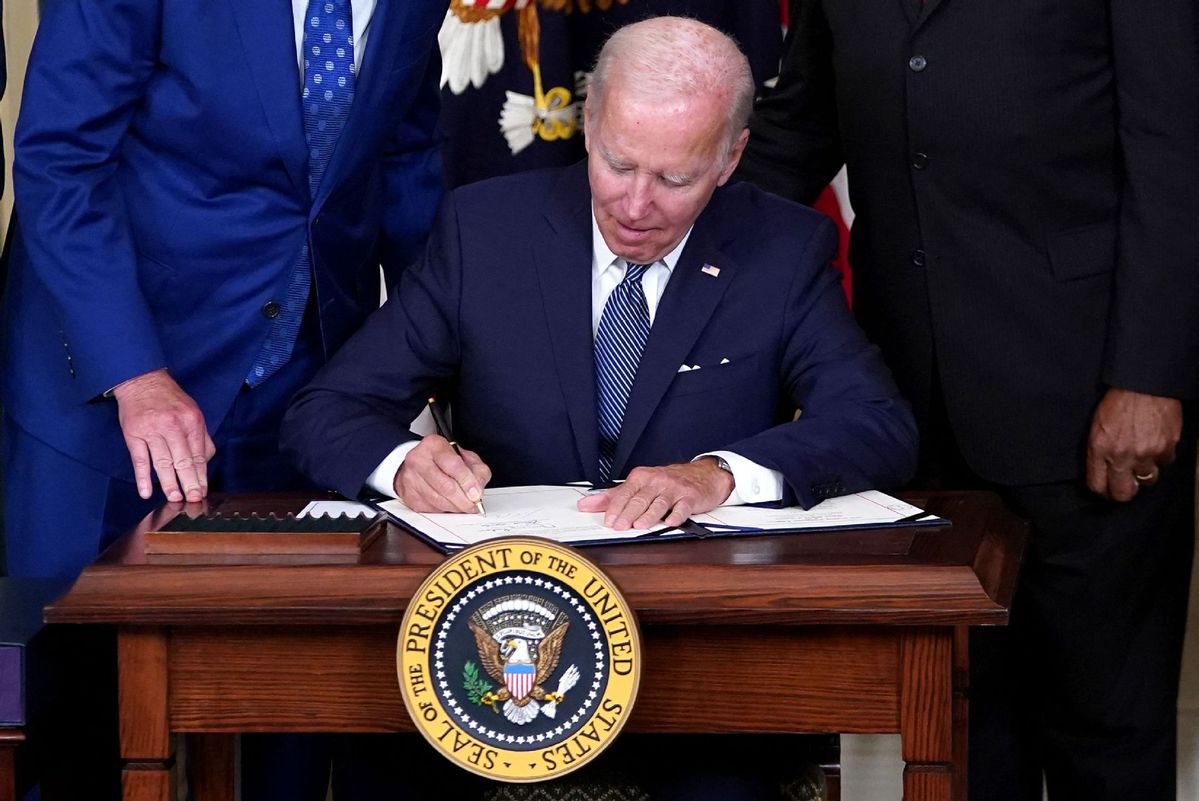Poison, bubble or meaningful climate action?
China Daily | Updated: 2022-08-29 07:42

On Aug 16, US President Joe Biden signed the Inflation Reduction Act into law after the US Congress passed it after almost a year's delay.
Of the $430 billion's investment, $370 billion will be invested in coping with climate change, enabling US families to get tax exemptions that could be as high as $7,500, while solar panel producers will get subsidies, too.
That's the biggest investment of the United States in clean energy, which is in turn a result of political compromises and trade-offs. Joe Manchin, a senator from West Virginia who initially firmly opposed the act, suddenly changed his position to support the act. Its passing will help to strengthen unity of the Democrats in the coming midterm elections.
Yet it is called "poison" by many in the US because it mainly benefits the "green" companies as a group of interests. It is Democrats and their companies that are winning, not all Americans. By increasing the spending of the federal government, the act will mean a heavier burden on taxpayers. Because, gas prices might rise as the act raises the tax on imported oil.
The US' legislation might deal a blow to China, too. By protecting certain industries of its own, the US is actually striking Chinese export companies, and pushing "decoupling" with China.
In order to cope with that, it is necessary for China to keep a close eye on the US' moves in the clean energy sector, so as to avoid being labeled as an outsider in fighting climate change by certain US legislators. Besides, Chinese media outlets should do more to let the world know China's contributions to fighting global climate change and protecting the environment, thus giving the world a better insight into what China is doing in this regard.
Some in the US also call the act "legislative bubble", which is rather proper because no one knows how long the act will last.
There are too many interests to balance in the US: Between the Democrats and the Republicans, between the federal and state governments, and among different industries. The midterm elections are coming and the presidential election is not that far away; no one can ensure the act will be in place for long.
After all, Biden signed the administrative order to rejoin the Paris Agreement, something his predecessor Donald Trump exited. No one knows how much more legislative bubble there will be in the US.
























